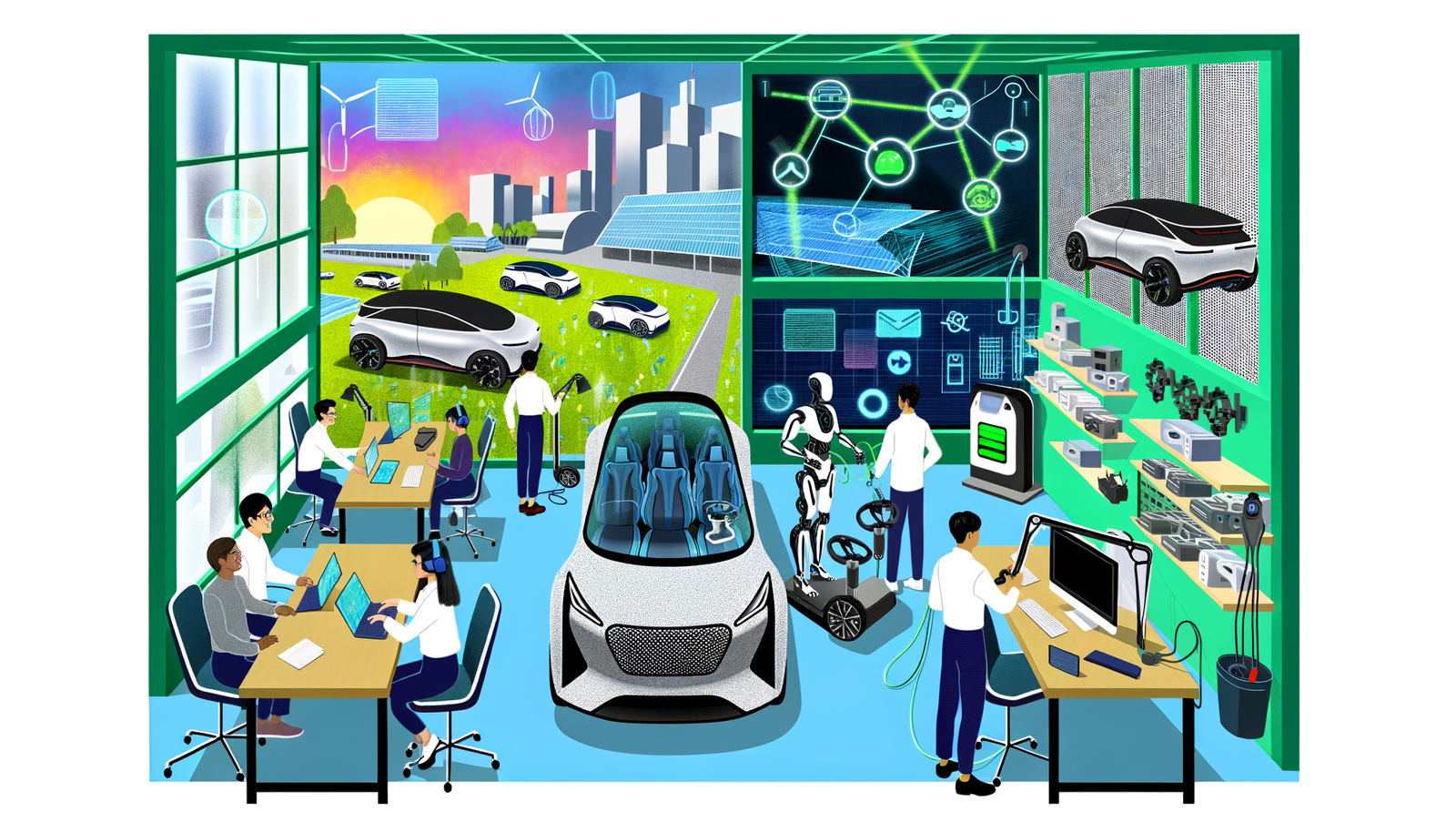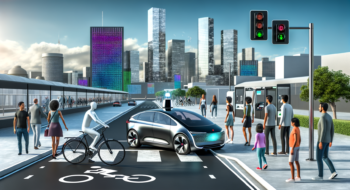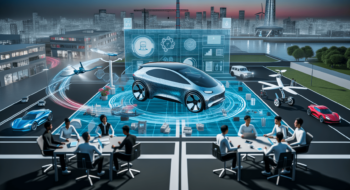The automotive industry is experiencing a transformative shift, driven by technological advancements, changing consumer preferences, and regulatory pressures. Recent trends highlight a growing emphasis on electric vehicles, autonomous driving technologies, and sustainable manufacturing practices. As automotive companies navigate this landscape, they are not only aiming to enhance vehicle performance and safety but also to reduce environmental impact and cater to a more connected world. In this article, we explore the key trends shaping the future of the automotive sector and their implications for manufacturers, consumers, and the planet.
1. Electric Vehicle (EV) Adoption Surge
One of the most unmistakable trends in the automotive industry is the rise of electric vehicles. As battery technology continues to evolve and charging infrastructure expands, consumers are increasingly choosing electric cars over traditional gasoline-powered vehicles. For example, in 2024, experts predict that electric vehicle sales could exceed 25% of total vehicle sales in the U.S. alone. This shift is not just about going green; it’s about capturing a new market that is savvy and environmentally conscious.
2. Autonomous Driving Technologies
Autonomous driving isn’t just a futuristic concept anymore; it’s becoming a reality. With major investments from tech companies and automotive giants alike, the race to develop capable autonomous vehicles is heating up. In 2024, expect to see Level 4 autonomous vehicles—those that can operate without human intervention in certain conditions—hitting the roads. As safety technologies improve and regulatory approvals become more streamlined, the vision of self-driving cars will inch closer to mass availability.
3. Sustainable Manufacturing Practices
Manufacturers are increasingly adopting green practices in their production processes, aiming to lessen their carbon footprints. This involves investing in renewable energy for factories, sourcing sustainable materials, and minimizing waste through improved processes. Many companies are setting ambitious goals to achieve carbon neutrality by 2030, underscoring a widespread industry commitment towards sustainability, which consumers are increasingly supporting.
4. Connected Vehicles: An IoT Revolution
As technology continues to evolve, vehicles are becoming more interconnected. The Internet of Things (IoT) is making its mark on the automotive industry, allowing vehicles to communicate with one another and with infrastructure. In 2024, we can expect an increase in smart features such as real-time traffic updates, vehicle-to-vehicle communication, and enhanced personal experiences through connected infotainment systems. This integration will not only improve safety and efficiency but also elevate the overall driving experience.
5. Shift Towards Mobility as a Service (MaaS)
With urbanization on the rise, the traditional concept of vehicle ownership is being challenged. Consumers are turning toward Mobility as a Service (MaaS), which includes a wide array of transportation options such as ride-sharing, public transit, and app-based services. By 2024, brands are likely to offer subscription services alongside ownership, allowing customers to access a vehicle when needed, without the hassles of maintenance or ownership. This democratization of mobility is set to revolutionize how we think about transportation.
6. Advanced Safety Technologies
Safety continues to be a top priority in automotive design. As expectations grow, so does the integration of advanced safety features such as adaptive cruise control, lane-keeping assistance, and automatic emergency braking systems. In 2024, look for these technologies to not only become standard but to enhance consumer confidence in EVs and autonomous vehicles.
7. Diversified Supply Chains
The pandemic has taught industries the hard lessons of supply chain vulnerabilities. The automotive sector is responding by diversifying its supply chains to ensure reliability and resilience. By 2024, we’ll see more companies establishing localized production and sourcing strategies that prioritize domestic suppliers. This not only mitigates risks but also furthers the trend of supporting local economies.
8. Blockchain Technology and Transparency
Blockchain isn’t just for cryptocurrency; it’s making waves in the automotive sector as a method to enhance transparency and traceability. With a growing demand for accountability in the supply chain—from raw materials to end products—blockchain technologies will aid manufacturers in tracking the provenance of materials. Expect this trend to gain traction in 2024 as companies focus on corporate responsibility and consumer trust.
9. Advanced Materials and Weight Reduction
In the quest to improve fuel efficiency and electric vehicle range, automotive manufacturers are increasingly turning to advanced materials. With the integration of lightweight materials such as carbon fiber, aluminum, and innovative composites, cars can achieve higher performance with lower energy consumption. By 2024, the focus on weight reduction in vehicle design will not only enhance efficiency but also support sustainability goals.
10. Personalization and Customer Engagement
Lastly, as competition in the automotive market ramps up, manufacturers are placing a greater emphasis on personalization. Data analytics and AI are enabling brands to better understand consumer preferences and offer customizable features, from interior designs to technology packages. Customers in 2024 will likely see an increasing number of options reflecting their personal style and needs, allowing for a more engaging and satisfying buying experience.
Conclusion: A Future Down the Road
The automotive landscape is rapidly evolving, influenced by both technology and consumer expectations. The trends identified demonstrate not only a shift toward sustainability and innovation but also a deeper commitment to enhancing the driving experience while being sensitive to today’s pressing environmental challenges.
As we venture into 2024, all eyes will be on how these trends manifest within the industry. Manufacturers will need to stay agile, embrace change, and continue to engage with consumers in meaningful ways. The future of the automotive industry is not just about vehicles; it’s about a transformed mobility ecosystem that prioritizes safety, convenience, and sustainability.







